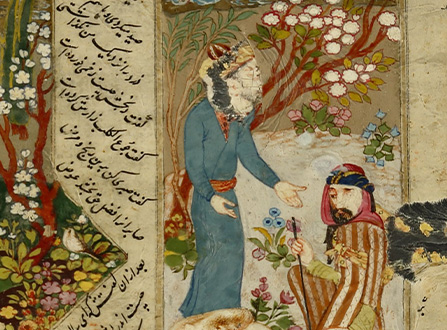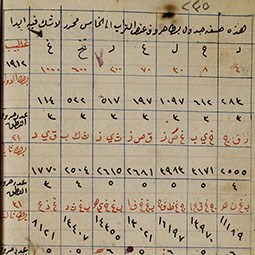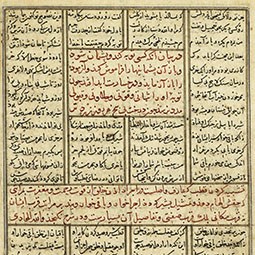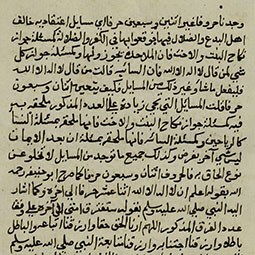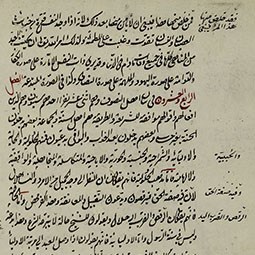Manuscripts from the History of Sufism
When speaking about Sufism, or even the history of Sufism, one encounters encouraging voices that support this spiritual path, as well as opposing voices, which argue that Sufism is a departure from custom and the prophetic tradition (sunna). There are also linguistic disagreements concerning the etymology of the term “Sufism” itself. Some believe that the concept is rooted in the word taṣawwuf, meaning “a pure heart for God,” which does not originally derive from Arabic. Others argue that Sufism evolved from al-ṣūfiyya, which relates to the word for “wool” (al-ṣūf in Arabic) – the material typically used to clothe the ascetics of this world.
Sufism is associated with the third level of religiosity in Islam, iḥsān (excellence/beautification): knowing reality (al-ḥaqīqa) and witnessing the real (al-Ḥaqq) in external forms, and then bearing witness to this knowledge by educating the heart and the soul. There is a difference between practical Sufism and scholastic Sufism. The first was inspired by early spiritual leaders such as Abū al-Hasan al-Shādhilī, Abdul Qādir Gīlānī, Aḥmadal-Rifāʿī, and others, while the second is associated with religious orders (Ṭarīqa) that developed around the teachings of the early masters. These include the Shādhiliyya, the Qādiriyya, and the Rifāʿiyya, to name a few. The various orders are often associated with a specific geographical region and culture. Sufi mentality and philosophy vary by order, in accordance with each order’s spiritual tendencies and sociological environment. Each Sufi path features some measure of both severity and lenience. Rituals include fasting, chanting, vigils, whirling, silence, and isolation.
Through the collections below, readers can become acquainted with the Sufism of al-Ghazālī, Jalāl al-Dīn al-Rūmī, Shams al-Dīn al-Tabrīzī, ibn ʿArabī, ibn ʿAṭāAllāh al-Iskandarī, Aḥmadal-Rifāʿī, Abū al-Hasan al-Shādhilī, and many other masters who have influenced the history of Sufism throughout history and into the present day.
The Library of Sufism is an immense, diverse collection of manuscripts consisting of supplication and specialized commentaries on the philosophy and spirituality of Sufism from multiple time periods and geographical regions. You can find all of the digital materials from the Library of Sufism below.

 Sign in with Google
Sign in with Google
 Sign in with Facebook
Sign in with Facebook
